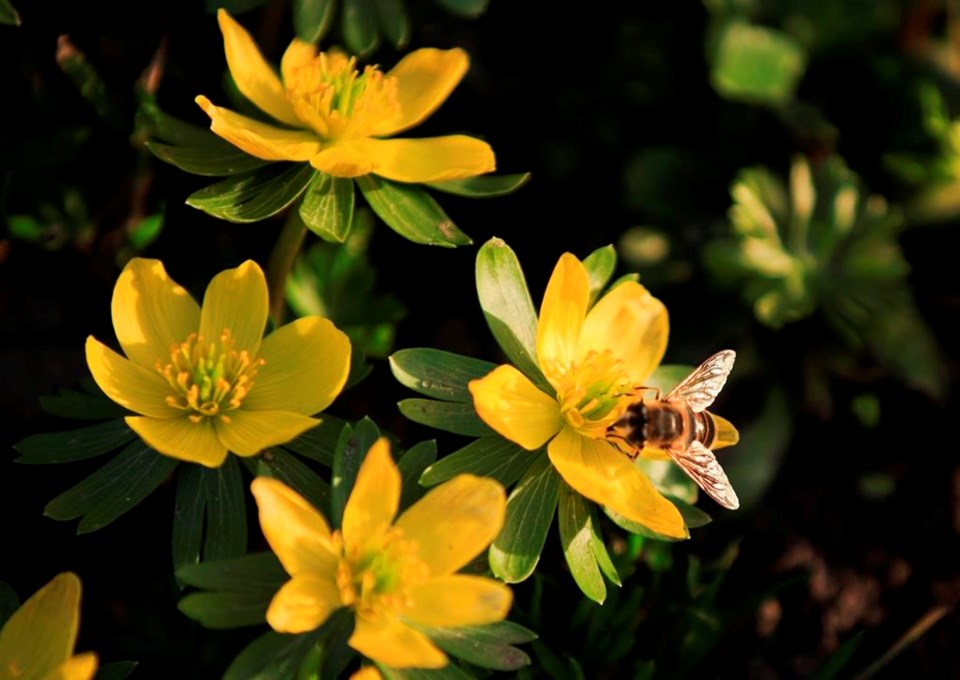A spice contaminated with a plant-based toxin was used in a chicken dish at a Markham, Ont., restaurant over the weekend and is believed to be responsible for sending a dozen people to hospital, the region's top doctor said Tuesday.
Dr. Barry Pakes of York Region Public Health said investigators believe the spice was contaminated with aconite, sometimes called wolfsbane or monkshood, that's found in herbs, roots, or a flower. There's no reason to believe the contamination was intentional, he said.
"This particular toxin acts very quickly. So almost everybody presented to hospital and had quite severe symptoms, severe enough to bring them to a hospital, within about an hour of consuming the food," Pakes told The Canadian Press in an interview.
Twelve people went to local hospitals Sunday night after eating the same chicken dish from Delight Restaurant and BBQ, he said.
Four of the diners required intensive care, but one has since been released from hospital, and the three others appeared to be improving, Pakes said.
The restaurant co-operated with investigators who were able to locate the Markham-area retailer of the suspected spice product and remove it from shelves, Pakes said. He did not reveal the name of the spice and said he did not know the name of the retailer.
The restaurant has been cleared to reopen on Wednesday, Pakes said.
"We don't see there as being any safety risk at that restaurant. We've gone back and re-inspected it and they'll be opening," he said.
"In the case of a small business like this, there's no reason to keep them closed. We're very confident of what the offending item actually was."
Symptoms of aconite poisoning include numbness in the face and extremities, severe gastrointestinal distress and an irregular heartbeat. It can also cause nausea, vomiting, cramping and muscle weakness.
If consumed in large enough quantities, aconite can cause fatal arrhythmia. The toxin can disrupt the electrical network of cells and signals that control the heart, leading to an irregular or ineffective heartbeat, followed by blood loss to organs, including the brain.
"That's a very severe situation where you need support for your blood pressure and particular medications to make the heart beat properly," Pakes said.
Local public health officials are working with provincial and federal partners to determine whether the spice product believed to be at the centre of the Markham case was available elsewhere. But, Pakes said, the risk was "very, very low" and the product is "very uncommonly used."
"It's not even clear if it's available, or where it's been distributed, but that's what we're investigating now," he said.
Audrey Champoux, press secretary for Public Safety Minister Marco Mendicino's office, said the minister was aware of the "concerning reports of a suspected food borne poisoning" in Markham.
"We continue to monitor for details as they are developing. We'd like to wish a speedy recovery to show who were affected and fell ill," Champoux wrote in a statement.
An intensive care physician at a Toronto hospital said a notice about diners falling ill after eating at the restaurant had been circulating among the region's ICU community.
The notice was shared among those who work at ICUs in the Greater Toronto Area, Dr. Michael Warner of Michael Garron Hospital said on Twitter.
York Regional Police said they were "made aware of an incident on Sunday" in Markham, but directed questions to the local public health unit.
In March, B.C.'s poison information centre and the Fraser Health authority warned the public not to consume Wing Hing brand sand ginger powder after two people were hospitalized. They later recovered.
York region's top doctor confirmed sand ginger powder is not the suspected spice in the current investigation.
- with files from Tyler Griffin.
This report by The Canadian Press was first published Aug. 30, 2022.
Jordan Omstead, The Canadian Press



